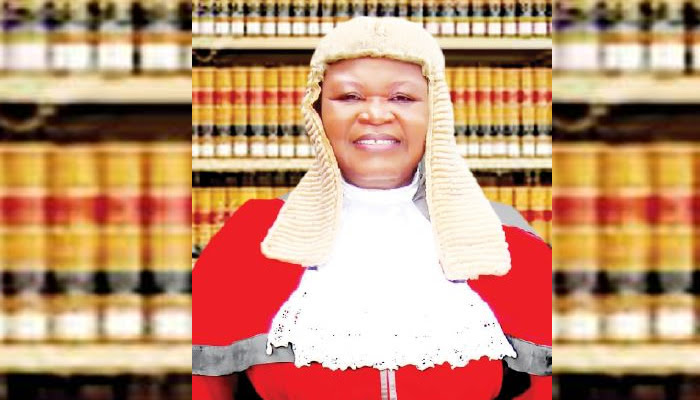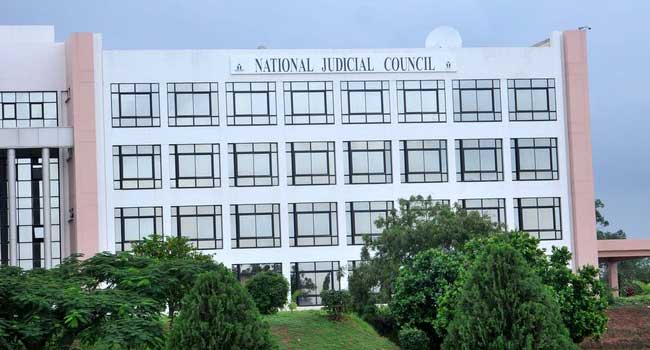A human rights lawyer, Tope Temokun, has sued the heads of the State Security Service (SSS), the Nigerian police, as well as the Chief Judge of the Federal High Court, over media restrictions barring many journalists from covering the trial of Nnamdi Kanu, leader of the proscribed Indigenous People of Biafra (IPOB).
The plaintiff filed the suit at the Federal High Court in Abuja, the same court Mr Kanu is being prosecuted on charges of treasonable felony and terrorism.
The charges, according to the prosecution, arose from Mr Kanu’s violent separatist agitations for a Republic of Biafra constituted by Igbo-dominated South-eastern part of Nigeria.
Mr Temokun cited in his suit, which he said was instituted in defence of press freedom, how only a handful of journalists were accredited, on July 23, to cover the July 26 proceedings in Mr Kanu’s trial while many unaccredited ones were barred from accessing the courtroom.
Since Mr Kanu’s first court appearance in June after he fled the country in September 2017, the court management and security operatives have been restricting media coverage of the case that attracts local and international interests.
Mr Temokun argues in his suit that the circular dated July 23, 2021 titled ‘MEDIA ACCREDITATION FOR NNAMDI KANU’S TRIAL’ which allowed some selected journalists to enter the court’s premises and denied others not selected entry amounts to “a breach of the rights to freedoms of expression and the press guaranteed by the Nigerian constitution and the African Charter on Human and Peoples’ Rights
He also argues that “the act of the officers and/or operatives” of the SSS and the police of cordoning off or barricading the access routes to the entrances of the Federal High Court in Abuja on July 26 and allowed journalists whose names were contained in the July 23 circular amounts a breach of the right to freedom from discrimination.
In a ridiculous repeat of the media restrictions, SSS operatives, complemented by the Nigeria Police Force and the Nigerian Army, on Thursday, barricaded adjoining streets to the Federal High Court in Abuja, the venue of the trial, turning journalists and lawyers away from the surroundings of the court premises.
Announcing the suit which he filed on October 18 in a statement on Friday, Mr Temokun said the indiscriminate harassment and assault of journalists and lawyers was a violation of their constitutionally guaranteed rights.
“Denying journalists access to the courts is an indictment on any democracy because in true democracy, press freedom comes first,” Mr Temokun said.
The lawyer said it had become necessary to challenge “this new regime of repression enjoying judicial support”.
“I have resolved to challenge this circular and have filed an action in the Federal High Court Abuja today in Suit No. FHC/ABJ/CS/1272/2021, subjecting the legality of this repressive document to scrutiny,” Mr Temokun said.
He added that “if we don’t stand up to challenge this new regime of repression enjoying judicial support, we don’t know for how long this treatment of assaulting people in court premises and denying the public access to courts by the DSS and the police would come to an end.”
He referenced the recent manhandling of this newspaper’s reporter, Ameh Ejekwonyilo, by armed SSS agents at Mpape magistrate’s court, Abuja, where the journalist had gone to cover proceedings in the trial of the five “Buhari-Must-Go” activists.
Similarly, Mr Temokun cited the harassment of a Vanguard Newspaper journalist by the SSS operatives at the Federal High Court in Abuja for the trial of 12 associates of a Yoruba nation agitator, Sunday Adeyemo, popularly called Sunday Igboho in Abuja.
The lawyer added that security agencies had relied on the journalists accreditation circular that was issued by the Federal High Court, to harass and intimidate journalists and members of the public, including Omoyele Sowore, Sahara Reporters publisher.
Mr Temokun therefore prayed for among others, the court’s declaration that the media accreditation circular dated July 23 allowing some journalists to enter the court premises for the July 26 trial of Mr Kanu and denying others “is not validly issued”, violates the provisions of sections 36(3) and (4) of the Nigerian constitution, “and is therefore illegal and unconstitutional”.
He also urged the court to declare such media accreditation allowing selective media coverage of proceedings as a breach of the right to freedom of expression, and press freedom guaranteed under section 39 of the Nigerian constitution and Articles 2, 9, 11, 13(2) and (3) of the African Charter on Human and Peoples Rights (Ratification and Enforcement) Act “and therefore illegal and unconstitutional”.
He sought another order setting aside the “circular datd July 23, 2021 with reference number: FHC/ABJ/INFO/026 and titled ‘MEDIA ACCREDITATION FOR NNAMDI KANU’S TRIAL signed by the 4th respondent”.
He also urged the court to issue an order of perpetual injunction restraining the defendants or through their representatives, agents or privies, or any body or anyone acting under the authority of the defendants from giving any or further effect to the circular.
Mr Temokun also urged the court to issue an order of perpetual injunction restraining security operatives of the SSS and the police “from further restricting and/or preventing media houses and journalists from entering court’s premises” based on a circular.
The Director-General of the SSS, the Inspector-General of Police, the Chief Judge of the Federal High Court and the court’s information officer who signed the accreditation circular, Catherine Christopher, are listd as respondents.





